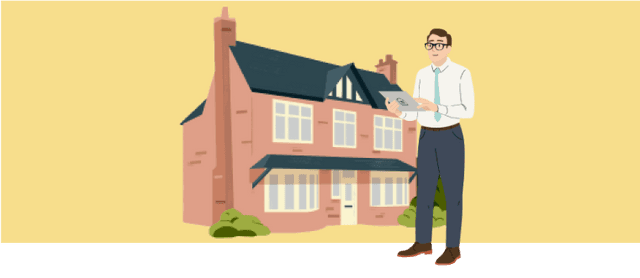My home has black mould – what can I do?
Following the tragic death of Awaab Ishak, a 2 year old boy, in a damp and mouldy flat in Rochdale, there has been a significant focus in news stories on condensation and its potential to adversely affect health.
Condensation
As the cold weather is now with us and heating is much more expensive (and therefore less used) condensation will also start to become more noticeable. Condensation will start as a small problem but, if left unresolved, will tend to get worse and promote growth of mould.
Condensation occurs when warm air meets with cold surfaces and/or when there’s too much humidity in your home. The amount of water that the air will hold in vapour form depends on temperature. As the temperature reduces, the air will hold less moisture and any excess will begin to condense on the nearest cold surface.
Normal everyday activities such as cooking, showering, and drying clothes on maidens or on radiators increase the amount of moisture in the air inside the property. When this moisture-laden warm air comes into contact with a cold surface such as an outside wall or a window pane, it cools down quickly and releases the water, which turns into liquid droplets.
In the cold winter months, the humidity inside properties is higher than in the warm summer months. This is because we tend to have the heating turned up high and the windows closed. Hence, condensation is more likely to occur during this season.
If condensation isn’t dealt with promptly it can go on to provide the right conditions for black spot mould to start growing on walls, ceilings, and around windows. Black spot mould is unsightly and can lead to health issues for occupiers including sinus problems, skin rashes, and bronchitis.
All properties have potential for condensation to occur but flats and bungalows are especially at risk because they are on one level and a lot of water vapour is generated on that one level.
What are the signs of condensation?
- One of the most common signs of condensation is black mould which can occur on any walls of the property. This compared to rising damp where if mould is present it will only occur on the ground floor of the property.
- Water will collect on windows is a common symptom of condensation in homes.
- Plaster will start to deteriorate if the condensation problem is not treated quickly. The walls will also appear wet.
Mould around a window
Mould in a cold spot next to a door
“Raining” in the loft
This may be less familiar but is worthy of mention. With houses being fitted with extra loft insulation, the loft areas are becoming very cold and condensation is likely. Hence we can see water droplets on the underfelt.
What can I do as an owner or tenant?
There are various ways that you can help yourself to reduce condensation
- cover pans when cooking
- use extractor fans in kitchens and bathrooms
- close internal doors when you cook or shower
- leave a gap between furniture and external walls
- dry clothes outdoors or use a vented tumble dryer
- open bedroom windows for 5-10 minutes when you get up
If there are repair problems, you should contact your landlord and keep a written record of your communications with them. Don’t ignore problems as they will get worse if not fixed.
What must I do if I am a landlord?
As a landlord, you must investigate the cause, using specialists where necessary, and carry out repairs.
Common repair issues that will cause general dampness and make condensation worse include:
- leaking internal pipes
- broken heating systems
- missing roof tiles or faulty guttering
- cracked walls or rotten window frames
You should also replace any damaged plaster, skirting boards or flooring and redecorate if needed once the problem is fixed.
The other part of the remedy is to educate the occupier and suggest ways to reduce and control moisture.
Author: Richard Ballam, Regional Director

